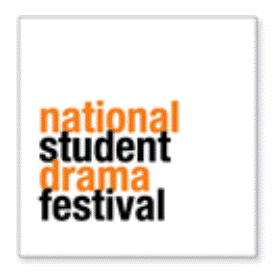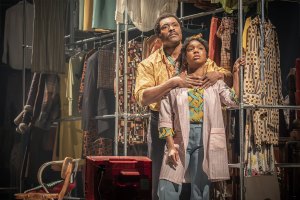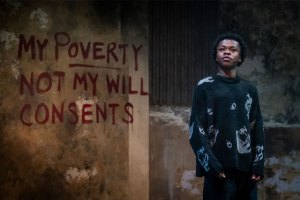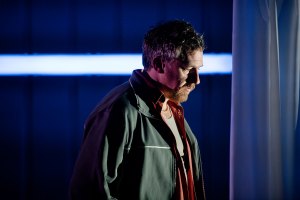Catherine Love: The joy of discovery
Sticking with the tried and tested might have its benefits, but a week at the National Student Drama Festival demonstrates the thrill of uncovering new talent

Last week I was lucky enough to get out of London and spend a few days in sun-drenched, wind-battered Scarborough, at this year's National Student Drama Festival (NSDF). The Festival, for those who don't know it, showcases the best work by students and young people from all over the country, alongside running a series of workshops and discussions for visitors. As well as rediscovering my love for the seaside, caffeine and inadvisably late nights, over the course of six days co-editing the Festival magazine I remembered another heady thrill: that of stumbling across fresh, undiscovered talent.
NSDF followed one of the most extraordinary weeks that London theatre has had for a long time – perhaps the most extraordinary week it will have all year. Over the course of three consecutive nights, Birdland, King Charles III and A View from the Bridge all opened, at the Royal Court, the Almeida and the Young Vic respectively. Three massive openings, three overwhelming critical successes. I have yet to see the third, but the first two are easily among my best theatregoing experiences of the year so far. While I may have been delighted with the quality of these shows, however, it would be disingenous to claim that I was particularly surprised.
Now for a contrast. On the Wednesday of NSDF I shuffled in somewhat reluctantly for a performance of Road, the 1986 Jim Cartwright play, by Warwick University Drama Society. In my memory, the play was tainted by its association with GCSE drama classes and the unedifying spectacle of a bunch of middle-class, Home Counties students clumsily evoking some soap opera idea of "the North". Two and a half hours later, however, I was left reeling, dazzled by the sheer power of Warwick's performances. My expectations were utterly, brilliantly smashed.
At the same time as I was catching my breath after Road, Lyn Gardner was questioning the choices that theatre critics make in their coverage. She argued – I think correctly – that "it's still the case that it's the shows that get most widely reviewed that are likely to be those valued within the culture". And it's the shows that have already accrued the most cultural value before press night, whether by virtue of the cast and creatives involved or the venue in which they are programmed, that are likely to receive the most reviews. The worry, with ever more work being presented on our stages, is that the same companies and artists continue to get attention, while new and exciting voices struggle to be heard over the din.
NSDF, with its exclusive emphasis on new work and young theatre-makers, is a vital, invigorating reminder of the joy of discovery. Perhaps I'm still giddily intoxicated by the optimism and excitement of the Festival, but I can honestly say that I think (or I sincerely hope) I've seen several theatre-makers who will go on to do fantastic things. The cast of Road were astonishing without exception; young company withWings confirmed that they are definitely ones to watch; there was huge invention and energy in the flawed but ambitious musical Americana; Barrel Organ Theatre loudly announced their arrival with thoughtful, fascinating new piece Nothing. And I'm happy to predict that Ali Pidsley, who directed both Road and Nothing (immediate additions to this year's theatre highlights), will be a familiar name for theatregoers in ten years' time.
But what happens to this work away from the sort of platform that NSDF offers? As brilliant an opportunity as this Festival is, it's not one that all new artists can take advantage of – and even for those who do, there's still no guarantee that their theatre will ever receive this level of attention again. Unless, that is, those of us who do have a platform make a point of going to see it. Theatre critic Matt Trueman has suggested that, with so much theatre always on offer, simply deciding what to see is a critical act in itself; increasingly, I find myself agreeing with him.
I think most of us, theatre critics and theatregoers alike, are guilty of treading well-worn paths. There are good reasons for not taking the risk of new, untested routes, time and money being just two of them. But without risk, there is no discovery. So consider this a resolution to try new ground, carve new paths and maybe, just maybe, make a few discoveries.












